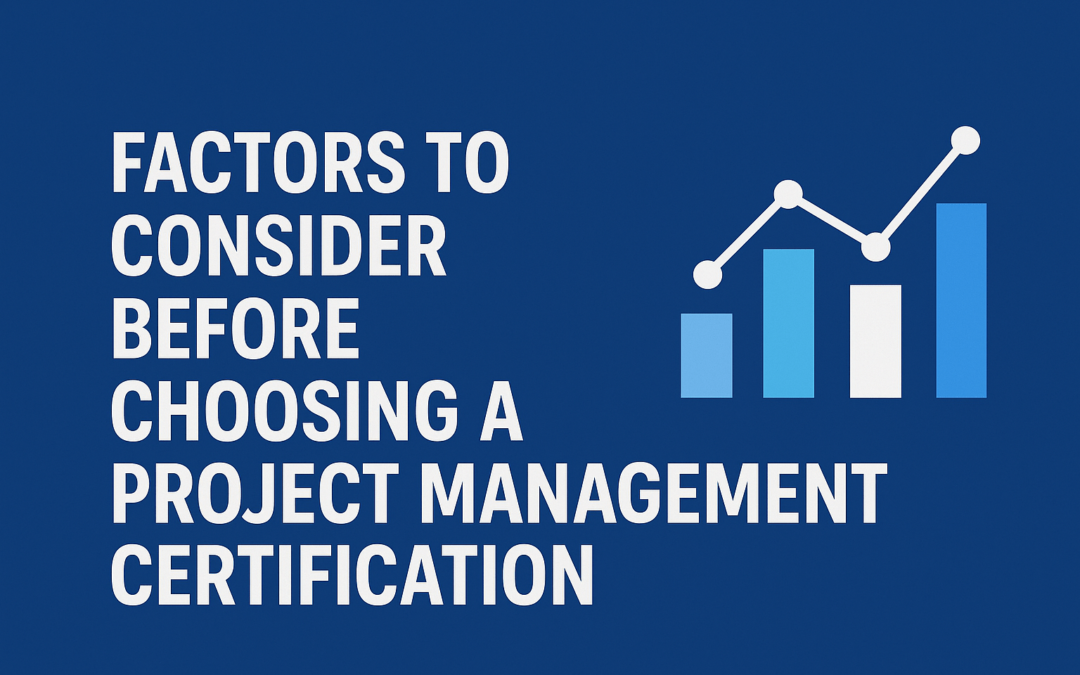Table of Contents
Quick Scan
-
Demand for certified project managers continues to rise across IT and non-IT sectors.
-
Not all certifications are equal—salary impact, global recognition, and prerequisites differ widely.
-
PMI’s PMP® remains the gold standard globally, while PRINCE2® dominates in the UK and Europe.
-
Agile certifications (PMI-ACP®, PRINCE2 Agile®, CSM®, PSM®) are increasingly valuable in today’s fast-paced business environments.
-
Language availability and location-specific demand can affect your choice.
Why Certification Still Matters in 2025?
Project management is no longer a discipline reserved for IT or construction alone. Every sector—from healthcare to finance to manufacturing—is embracing structured project delivery and agility. According to PMI’s Talent Gap Report (2023), the world will need 2.3 million project professionals annually through 2030.
For project managers and corporate training buyers, certification isn’t just a badge—it’s proof of competence, commitment, and career readiness. But with dozens of options on the market, how do you decide which certification offers the best ROI for your career or workforce?
Let’s explore the six most important factors to consider.
1. Your Working Approach (Agile vs. Traditional vs. Hybrid)
Your certification should align with the methodologies you use (or aspire to use).
-
Agile-Focused Roles:
-
PMI-ACP® (Agile Certified Practitioner): Broad overview of Agile principles, frameworks, and practices.
-
PRINCE2 Agile® (AXELOS): Combines structured governance with Agile delivery.
-
Certified Scrum Master® (CSM, Scrum Alliance) and Professional Scrum Master® (PSM, Scrum.org): Ideal for Scrum teams and organisations committed to iterative delivery.
-
-
Traditional/Hybrid Roles:
-
PMP® (Project Management Professional, PMI): Covers predictive, hybrid, and Agile methods with a focus on leadership and business acumen.
-
PRINCE2® (Projects in Controlled Environments): Popular for structured governance frameworks, particularly in Europe and government sectors.
-
Infographic idea: A branching decision flowchart: “Agile → PMI-ACP / CSM / PSM” vs. “Hybrid/Traditional → PMP / PRINCE2.”
| Certification | Avg. Global Salary (USD, 2024 PMI & Glassdoor data) | Typical Cost (Exam + Training) | ROI Potential |
|---|---|---|---|
| PMP® (PMI) | $115,000+ | $1,200–$2,500 | ★★★★★ |
| PRINCE2® | $90,000–$95,000 | $1,000–$1,500 | ★★★★☆ |
| PMI-ACP® | $105,000+ | $900–$1,800 | ★★★★☆ |
| CompTIA Project+ | $70,000 | $500–$800 | ★★☆☆☆ |
| CSM® | $95,000 | $600–$1,200 | ★★★★☆ |
Certifications like PMP® consistently deliver 20–25% higher salaries compared to non-certified peers. Entry-level certifications (CompTIA Project+, CAPM®) are cheaper but offer less salary uplift.
3. Experience Requirements
Not every certification has the same prerequisites.
-
PMP®: Requires a 4-year degree + 36 months of project leadership experience (or 60 months with no degree) and 35 hours of training.
-
PMI-ACP®: 2,000 hours of project experience + 1,500 hours on Agile teams + 21 contact hours training.
-
PRINCE2® Foundation: No prerequisites; Practitioner requires Foundation.
-
PSM® or CSM®: No prerequisites; beginner-friendly.
Framework suggestion: A table showing “Entry-Level → Mid-Level → Senior-Level” mapping certifications by career stage.
4. Global vs. Regional Recognition
Certifications are “globally recognized”—but market demand varies.
-
Global Gold Standard: PMP® (recognized in 200+ countries, particularly strong in North America, Asia-Pacific, and the Middle East).
-
Region-Specific Strength: PRINCE2® dominates the UK, EU, and Australia.
-
Agile Ecosystem: CSM® and PSM® are highly respected in tech-driven companies worldwide.
If you plan to relocate or work across regions, PMP® provides the broadest recognition.
5. Credibility & Longevity
A certification’s history often reflects its trustworthiness:
-
PMP®: Established in 1984; over 1.4 million active certification holders.
-
PRINCE2®: Originated in 1989; government and infrastructure-heavy industries.
-
CSM®: Introduced in 2002; rapidly scaled with Agile adoption.
Long-standing certifications with robust ecosystems (exam prep, study groups, renewal pathways) provide stronger career durability.
6. Language Accessibility
Language availability can make or break your learning and exam success.
-
PMP®: Offered in 14+ languages including Spanish, Chinese, Arabic, French, German, and Japanese.
-
PRINCE2®: Available in seven European languages.
-
Scrum Certifications: Mostly limited to English.
For global teams, PMP® offers the most accessible path.
FAQ: Project Management Certifications
Q1: Is PMP® still worth it in 2025?
Yes. PMP® remains the most in-demand project management certification globally, with higher salary premiums and employer recognition across industries.
Q2: Which certification is best for beginners?
CAPM® (PMI), CompTIA Project+, or PSM® are excellent starting points for those with little to no project experience.
Q3: How long does it take to prepare for PMP®?
On average, 2–3 months of structured study with 150–200 hours of preparation, often through training providers like PM Training School.
Q4: Agile or PMP—which should I choose?
If your organisation is adopting Agile frameworks, PMI-ACP®, CSM®, or PSM® may fit best. If you want broader, cross-industry recognition, PMP® offers more versatility.
Q5: Do employers value PRINCE2 outside the UK?
Yes, particularly in Europe, Australia, and multinational organisations with government contracts. But globally, PMP® holds stronger recognition.
Conclusion
Choosing the right project management certification isn’t just about passing an exam—it’s about aligning with your career goals, market demand, and organisational context. Whether you’re aiming for Agile mastery, structured governance, or global leadership credibility, the right choice can accelerate your career and salary growth.
For professionals in New Zealand, Australia, and beyond, PM Training School offers accredited training and exam preparation for PMP®, PRINCE2®, Agile, and more.
👉 Follow PM Training School on LinkedIn for more insights on project management and corporate training.



Recent Comments